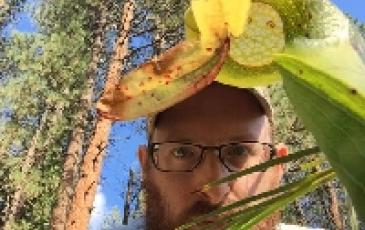Chemical Genomics Reveals Insights into Endomembrane Trafficking in Plants
Past PMB Seminars
For a schedule of all Plant & Microbial Biology events, seminars, and lectures visit our calendar.
Carol Gross: Kustu Lecture: Manufacture of the bacterial proteome
Carol Gross. Manufacture of the bacterial proteome
Holly V. Moeller: Trade, Borrow, or Steal: Acquired Metabolism in Community Ecology
Energy and Resources Group Spring 2015 Colloquium Series (ER295)
Berkeley Food Institute Diversified Farming Systems Roundtable: Agroecology Enters the Vocabulary of the United Nations
Speaker: Barbara Gemmill-Herren The intergovernmental process on agriculture (thus, policy carried out on international level, between governments) has often been fraught with disagreement. While major issues are recognized with a food system that is failing to nourish a large percentage of the global population, radically divergent paradigms of the future of agriculture are proposed as...
Xingli Giam: Conserving Freshwater Biodiversity in a Rapidly Changing World
Energy and Resources Group Spring 2015 Colloquium Series (ER295)
Dave Armitage, PhD Candidate: Ecology and Evolution of Carnivorous Plants
Join your host Tesla Monson as she interviews biologist Dave Armitage for The Graduates talk show. Dave's work on carnivorous plants investigates how plants and bacteria shape each other's ecology and evolution. The Graduates, highlighting graduate student research at Berkeley and around the world, is broadcast every other Tuesday at 9AM on KALX 90.7FM and on the web.
Lara Kueppers: Climate change and ecological dynamics from food to forests
Energy and Resources Group Spring 2015 Colloquium Series (ER295)





